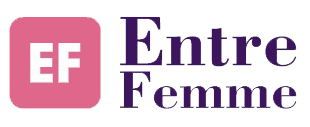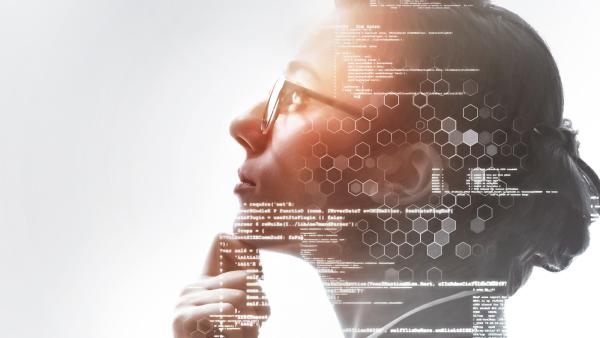The AI Revolution: What It Means for Women's Careers (and Who Benefits Most)
The rise of artificial intelligence is reshaping industries, redefining jobs, and promising unprecedented efficiencies. But as this AI revolution accelerates, a critical question emerges: what does it truly mean for women's careers? Will AI be an equalizer, unlocking new opportunities and flexibility, or will it exacerbate existing inequalities, leaving some behind?
- Ornella Jameson
- Jul 04, 2025
- 0 Comments
- 2534 Views
This article dives into the complex interplay between AI and the female workforce, exploring who stands to benefit most and the strategies needed to ensure an equitable future in an increasingly automated world.
When Technology Moves Fast, People Can Get Left Behind
Artificial intelligence promises efficiency and new opportunities. But the reality is more complicated, especially for women. In many industries, AI is reshaping roles, automating routine tasks—but often it’s women in low-paid, precarious jobs who face the biggest risks. From manufacturing lines to administrative support, many women’s jobs are vulnerable to being replaced by algorithms.
At the same time, women are underrepresented in the tech fields of designing and deploying AI. This absence means their perspectives, needs, and challenges are often missing in AI development. The result? Systems that can reinforce biases, overlook fairness, and widen existing workplace inequalities.
Who Benefits When AI Takes Center Stage?
Women with access to education, tech training, and leadership positions stand to gain from AI. They can harness new tools to innovate, create flexible work models, and push for inclusive tech policies. But this opportunity is uneven. For many women—especially those from marginalized groups, rural areas, or low-income backgrounds—AI can deepen divides rather than close them.
Without deliberate action, AI risks becoming a force that concentrates power in the hands of a few, leaving behind those already struggling to be seen and heard in the workplace.
Reclaiming the Future: Inclusion as a Strategy
The key is not resisting AI but shaping it. Women-led initiatives and organizations are stepping up to demand fairness in AI design and workplace adaptation. They push for transparency, accountability, and ethical AI that serves everyone.
Education and reskilling programs focused on women are crucial. From coding bootcamps to leadership workshops, these efforts build a future where women not only survive but thrive alongside AI.
The Work Ahead Is More Than Technical
Addressing AI’s impact on women requires more than tech fixes—it calls for cultural change. It means rethinking workplace norms, confronting gender bias, and creating policies that protect vulnerable workers. It means making sure AI becomes a tool for empowerment, not exclusion.
Whether you're upgrading your skills, starting a tech side hustle, or just trying to stay competitive—here are tools, books, and accessories from Amazon and Temu to support women navigating the future of work.
Amazon Picks for Future-Proof Women in Tech & Business
-
“Girl Decoded” by Rana el Kaliouby
A powerful memoir by a female AI pioneer—part tech, part emotional intelligence.
=> Shop on Amazon -
“AI 2041” by Kai-Fu Lee
Understand how AI is shaping industries—and how to prepare for it.
=> Shop on Amazon -
Logitech MX Master 3S Wireless Mouse
An ergonomic, high-performance tool for designers, coders, or remote pros.
=> Shop on Amazon -
Online Course Bundle: AI & Data Science Basics (Coursera, Udemy gift card)
Invest in future-proof skills from anywhere.
=> Shop on Amazon -
Blue Light Blocking Glasses
Protect your vision while working long hours on digital tasks.
=> Shop on Amazon
Temu Tech & Career Boosters on a Budget
-
Mini Desktop Whiteboard for Brainstorming
Perfect for ideation, coding notes, or productivity hacks.
=> Shop on Temu -
USB-C Docking Station (Multiport Adapter)
Upgrade any laptop setup instantly—ideal for remote work.
=> Shop on Temu -
Noise-Cancelling Headset with Mic
Affordable and professional—great for online meetings or tech interviews.
=> Shop on Temu -
Desk Organizer Set (Modern Minimalist)
Stay sharp, tidy, and productive while working from home.
=> Shop on Temu -
Inspirational Laptop Stickers for Women in Tech
Affirming, aesthetic, and motivating for coders, creatives, and builders.
=> Shop on Temu
AI will change work, but how it changes women’s lives depends on the choices we make today. Will we build systems that uplift or systems that divide? The future isn’t just about machines but the people behind them. Women’s voices, leadership, and vision are essential to ensuring AI is a force for equity and justice in the workplace

 | Unlock Success with Our Guide
| Unlock Success with Our Guide



0 Comments